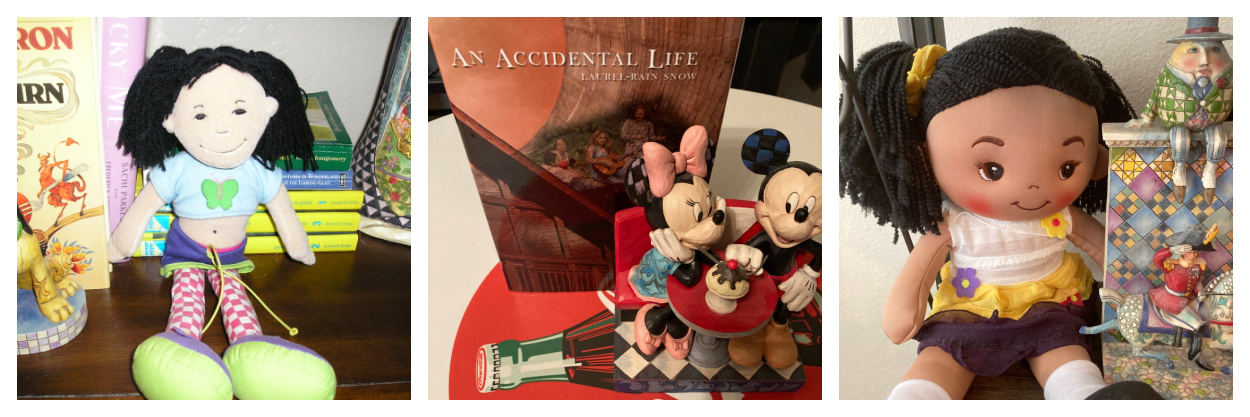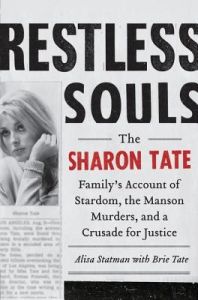The horrific and gruesome murder spree in August 1969, beginning with five people, including Sharon Tate, will forever taint a time—the sixties—and cast a legacy of loss and pain upon the generations that followed for the families affected: first the Tates, and then the LaBiancas, who were murdered the following day.
But Restless Souls: The Sharon Tate Family’s Account of Stardom, the Manson Murders, and a Crusade for Justice is primarily the story of one family, the Tates, and is told in the voices of Patti Tate, Sharon Tate’s sister; her mother Doris; and Patti’s daughter Brie. From their perspectives, we learn a bit about what life was like for them…after.
The manuscript, intended to be Patti’s autobiography, was finished after her death by Alisa Statman, her friend, along with Brie Tate. Statman also drew upon material from interviews, journals, and filled in the gaps with her personal interpretations.
I began this book believing that I would learn more about the Tate family and how they suffered afterwards. And I did learn that. But I was surprised by how much I also learned about the various aspects of the prison system in California during the time period following the murders, and how changes in the law forced the Tates—beginning with Doris, who was the strongest advocate—to actively petition and speak out against the potential release of these gruesome murderers to parole, after their death sentences were commuted to life imprisonment.
The toll taken on Doris and Patti in the aftermath must have greatly contributed to their untimely deaths. Definitely their experiences affected the family members for all time. But, as Brie has stated in the final chapter:
“Sorrow may seem a pitiful emotion, yet I am blessed by it. For it has left me a legacy of love, determination, and courage handed down by my mother and my grandparents before her. They taught me that we learn our greatest lessons through hardship. And through that hardship, they taught me not about fear and retribution, but about giving.”
To turn the pain and sorrow into “positive stones” to pay forward, Brie Tate’s legacy is thus not only about pain and loss but about the blessings that accrue from positive action.
The book was long and detailed, and at times, wore me down with all the information, some of it quite grisly, but in the end, I felt renewed and as if I could take away something worthwhile from the task. Four stars.


Pingback: TSS: WHAT WILL THE DAY BRING? — FEB. 3 « SERENDIPITY